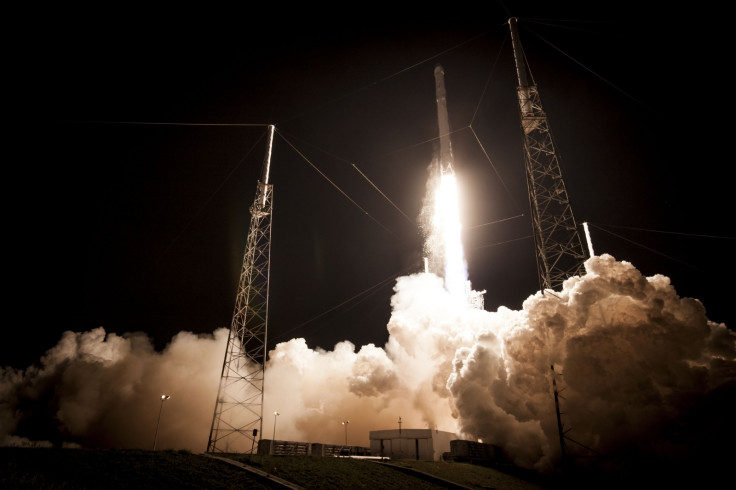SpaceX plans to launch ISS resupply mission from historic Nasa pad on 18 February
SpaceX said it plans to launch its Falcon 9 rockets every two to three weeks.

SpaceX is planning to launch its next resupply mission to the International Space Station (ISS) for Nasa on 18 February from the historic Launch Complex 39A at Nasa's Kennedy Space Center in Florida. The mission will bring crucial supplies for the space station crew as well as scientific research and hardware to support multiple experiments on the orbital laboratory.
The Falcon 9 rocket and unmanned Dragon cargo capsule will be the first to lift off from the newly renovated launch pad. The launch will be SpaceX's 10th resupply mission under a Nasa Commercial Resupply Services contract worth around $3bn (£2.4bn). The spaceflight company made the announcement via Twitter on Wednesday.
Built in the 1960s, the pad was previously used for the Apollo and space shuttle programmes. Launch Pad 39A has not hosted a launch since 2011 when the last space shuttle lifted off. In 2014, SpaceX leased the pad from Nasa and is modifying the pad for both unmanned and manned launches of the Falcon 9 and future Falcon 9 Heavy rockets.
The company will conduct additional ground systems tests prior to launch due to the pad's new renovations and construction.
On 18 February, a Falcon 9 rocket will carry a robotic Dragon spacecraft filled with over 5,500 lbs (2,500kg) of cargo to the ISS, Nasa officials said, Space.com reports.
It will also carry an instrument designed to monitor and study the ozone layer from outside the space station as well as an experiment by high school students at Craft Academy at Morehead State University to test the effect of microgravity on smooth muscle cell contraction. The Dragon will also carry advanced space research to improve disease-fighting drugs and automate spacecraft navigation, Nasa said in a blog post.
The spacecraft will then return to Earth with nearly 5,000 lbs (2,300kg) of cargo.
Targeting Feb. 18 for Dragon's next resupply mission to the @Space_Station — our 1st launch from LC-39A at @NASA's Kennedy Space Center.
— SpaceX (@SpaceX) February 8, 2017
The February launch will also be SpaceX's first on the east coast since the massive, expensive explosion at Cape Canaveral Air Force Station in September last year. The blast destroyed both the Falcon 9 rocket as well as Israeli firm Spacecom's $200m (£159m) Amos 6 communications satellite.
Following a four-month launch hiatus, SpaceX successfully returned to flight in January this year with the launch of its Falcon 9 rocket that carried a payload of 10 Iridium satellites into orbit from the Vandenberg Air Force Base in California.
Earlier this week, SpaceX president Gwynne Shotwell said the company plans to launch its Falcon 9 rockets every two to three weeks once the new launch pad in Florida opens next week to relieve its backlog of missions. According to Reuters, the company has a backlog of 70 missions worth more than $10bn, having launched just eight Falcon 9 flights last year.
© Copyright IBTimes 2025. All rights reserved.





















